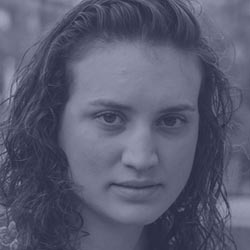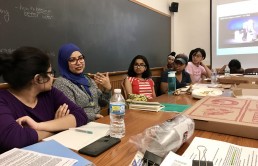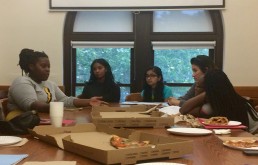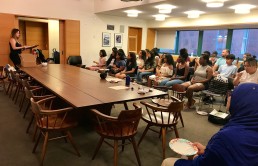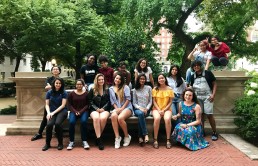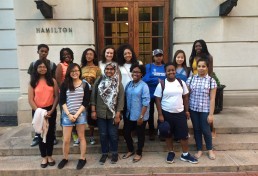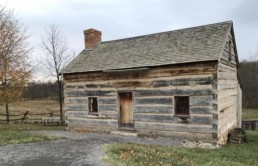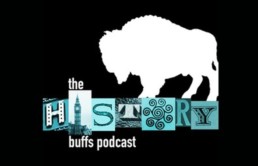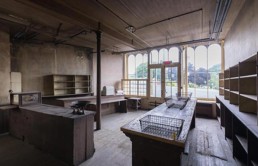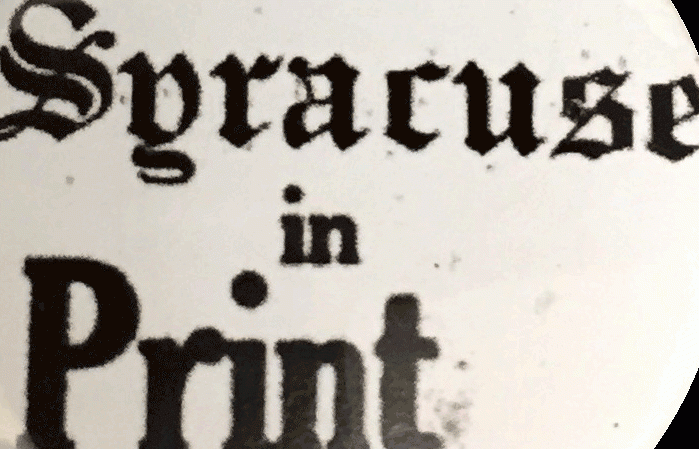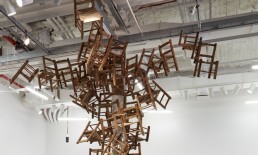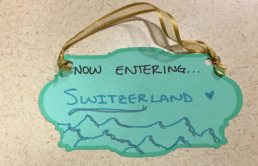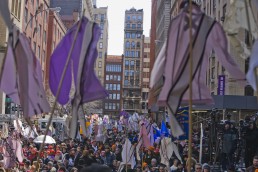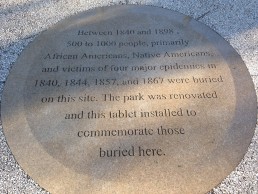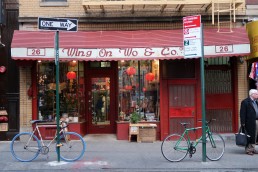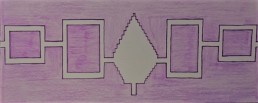The Kaleidoscope Project
The Kaleidoscope Project was founded on a simple premise: when kids have access to stories that validate their lives, they feel more empowered to learn.
by Nicole Gervasio
School Curriculum
Even if I am a born citizen of the United States, the racism directed toward my parents is directed toward me– I owe them everything. It’s important for me to conquer these prejudices through the English language and explore the roots that cause daily dissension both inside and outside my household.
– Sumaita Hasan, Kaleidoscope Class '16
Yes I was watching youBut can you look beyond the pageTo see I am scared toDive into the deepEnd
– Excerpt from a poem by Nia Isaac, Kaleidoscope Class '16
Share
The Kaleidoscope Project was a diversity-based reading and creative writing program that I developed under the auspices of a Public Humanities Fellowship, jointly funded by Humanities New York and the Heyman Center for the Humanities at Columbia University. The project, named after the literary magazine founded by underrepresented students at my alma mater, Bryn Mawr College, sought to expand high school students’ access to contemporary literature that better reflects their own lived experiences. Only 20 percent of the recommended readings on the core language arts curriculum taught in New York public schools as of 2016 are by women; 16 percent are by non-white writers, and two books total by non-Western writers (Pablo Neruda and Chinua Achebe). In contrast, 85 percent of school-aged children in New York City are first-generation immigrants and/or non-white. The application statistics alone attest to students’ intense desires for more diverse books: my funding could only support 17 percent (18 participants) of the average 105 students applying each of the two years when the program ran (2015-2017).
I aimed to achieve equal access and inclusivity both in terms of course content and infrastructure. All eighteen students in each summer term received free round-trip MetroCards, essential school supplies such as notebooks and pens, and dinner at every class to ensure that no one’s attendance presented a burden to their socioeconomic standing. I organized the syllabus according to social differences that often instigate bias-based harassment in public schools, highlighting non-Western, LGBTQI, working-class, disabled, and/or woman-identified writers. Each week, students met to share their creative writing homework and discuss readings in a college-level, seminar-style environment. Since 2016, I have continued to serve students as a mentor and reader for college preparation, recommendation letters, and personal statements.
About this Fellow
In 2018 I received my doctorate in English and comparative literature with a certificate in women’s, gender and sexuality studies from Columbia University. I served as the 2018-19 Carol G. Lederer Postdoctoral Research Associate for a project titled, “What Are Human Rights? Imperial Origins, Curatorial Practices and Non-Imperial Ground,” at the Pembroke Center for Teaching and Research on Women at Brown University. In September, I will be joining PEN America, a nonprofit in New York City that works at the intersections of human rights, world literature, and freedom of expression around the globe, as a Mellon/ACLS Public Fellow. My academic research has appeared or is upcoming in Modern Language Studies, Differences, English Language Notes, and Women Mobilizing Memory. My public writing can be found on Public Books and The Guardian.
Personal Website: https://sites.google.com/view/nicolemariegervasio
Hero image: Courtesy of Nicole Gervasio.
Related Content
Upstate Historical
An interactive website that brings the rich history of Upstate New York to life through stories and tours…
The History Buffs
A podcast series—founded by seven historians from Buffalo, NY—that explores diverse topics from a historical perspective…
The Sunday List
A restoration of a bakery run by Jewish immigrants that served the entire community in Kingston, NY for about 80 years.
November 1, 2018Oral History,Remembrance,Local History,PreservationExhibit
Syracuse in Print
Syracuse in Print celebrates our analog now by partnering with local libraries, makerspaces, and other community organizations that value print culture in its eclectic, varied forms.
Bordering the Imaginary: Art from the Dominican Republic, Haiti, and Their Diasporas
An art exhibition and related programming that explored the historical relationship of the Dominican Republic, Haiti, and their diasporas in New York.
Literature in Medicine
A project bringing college students into local hospitals to explore the intersection of art and health.
Remember the Triangle Fire
A night of multi-media commemorating the Triangle Shirtwaist Factory fire and supporting continuing efforts to improve labor conditions around the world.
Making the Public History Classroom Public
Fieldwork by students at the Olde Towne of Flushing Burial Ground Conservancy which resulted in major projects throughout New York City.
September 10, 2019Local History,Education,PreservationSchool Curriculum
Chinatown Movements: Past, Present, & Futures
A series of public events highlighting historic and contemporary social movements in Manhattan's Chinatown.
September 11, 2019Oral History,Remembrance,Local History,Preservation,DiasporaEvent
Learning the Seneca Indian Language
A website introducing visitors to the Seneca Indian language.
September 16, 2019Language,Preservation,Native AmericanWebsite
